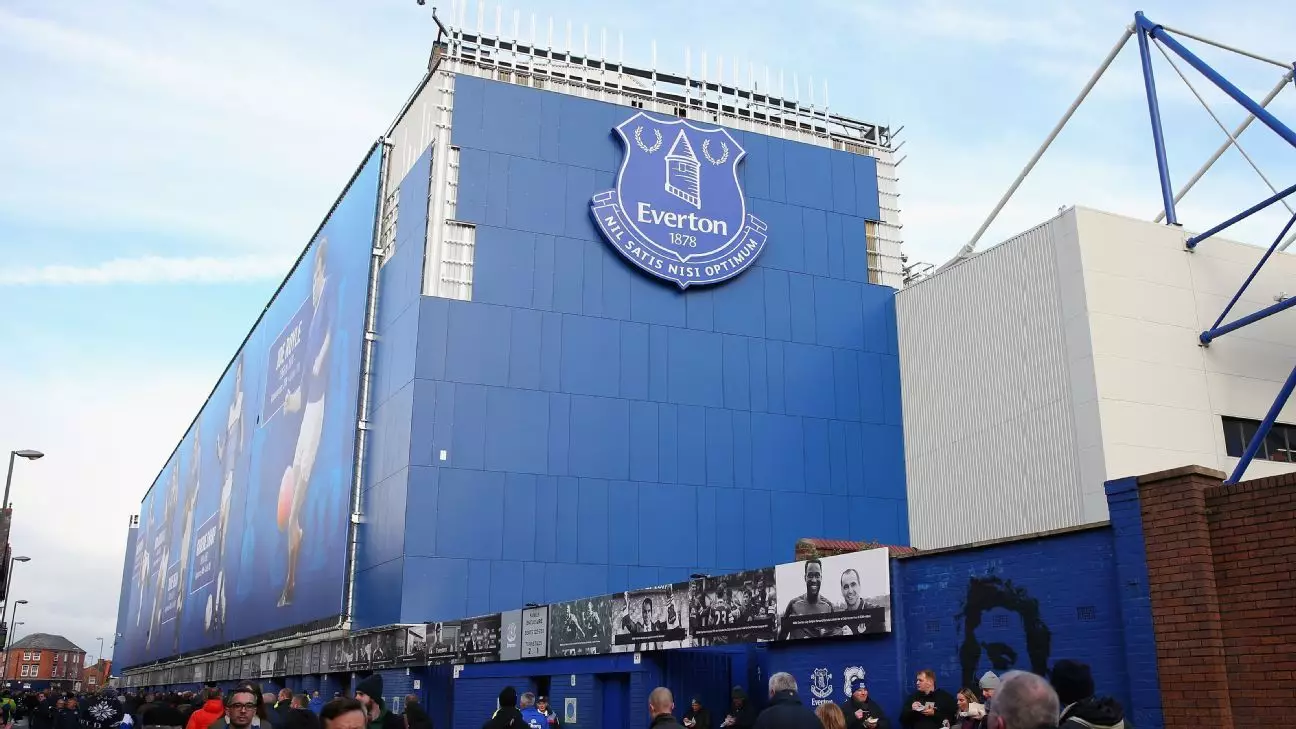Recent developments have heralded a potential turning point for Everton Football Club, with The Friedkin Group poised to acquire a dominating 94.1% stake from Farhad Moshiri, the club’s current owner. Announced earlier this week, this acquisition signals a crucial moment that may pave the way for stability after a series of tumultuous years marked by ownership uncertainty and financial struggles. As the Texas-based consortium holds interests in various sectors, including sports through its ownership of AS Roma, their involvement in Everton could bring fresh energy and resources to a club desperately in need of revitalization.
Moshiri’s journey with Everton began in 2016 when he purchased a 49.9% share, later augmenting this investment to a commanding 94.1% in 2022, highlighting his ambitions for the club. However, the transition from shareholder to dominant owner was rocky, characterized by various challenges including financial difficulties that led the club into the depths of relegation battles. The recent conflicts over ownership and attempted transactions, notably the failed agreement with the Miami-based 777 Partners, further exacerbated the chaos surrounding the club’s administrative landscape.
Moshiri’s era was marked not just by capital injections but also by strategic missteps. The increasing stakes which he secured did not translate into on-field success or a cohesive vision for the club, leading many to speculate about the viability of his long-term plans for Everton.
A Breath of Fresh Air for Everton
In contrast, the entry of The Friedkin Group could signify a new dawn for the Toffees. The consortium has expressed intentions to maintain the heritage of the club while ushering in an era of strategic direction and fiscal responsibility. Their commitment to completing the new stadium at Bramley-Moore Dock is particularly significant, as a modern venue could enhance both the club’s income streams and community engagement, vital components for a long-term sustainable future.
The group’s aspiration to become “custodians” of Everton highlights a potential shift in operational philosophy, focusing not only on the stability of the club but also on rebuilding its reputation in the footballing community. The previous season’s relegation flirtation serves as a stark reminder that drastic changes are needed, and this ownership change may signify the beginning of stabilizing the situation both on and off the pitch.
However, the road ahead is fraught with challenges. The ownership transition is contingent on regulatory approval from English authorities, and the club currently finds itself languishing near the bottom of the Premier League table. With Sean Dyche at the helm, the pressure is mounting to rectify the team’s performances quickly.
For The Friedkin Group, the focus will not only be on righting the ship at Goodison Park but also on strategically navigating the financial landscape intertwined with the Premier League’s Profitability and Sustainability Rules. Their track record suggests they have the necessary business acumen, but whether that can translate to footballing success remains to be seen.
Ultimately, the acquisition of Everton by The Friedkin Group presents both challenges and opportunities. A strong strategic plan and the right investments could revitalize the club, ensuring that it emerges from its recent struggles with renewed vigor and a clear vision for a prosperous future.

